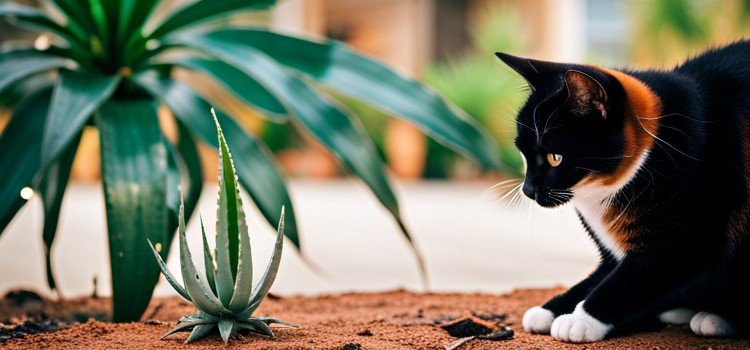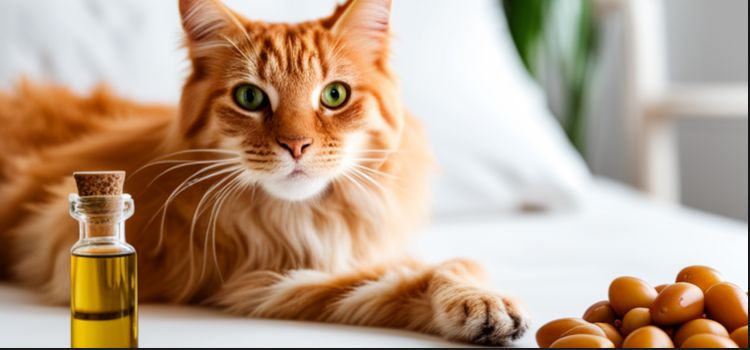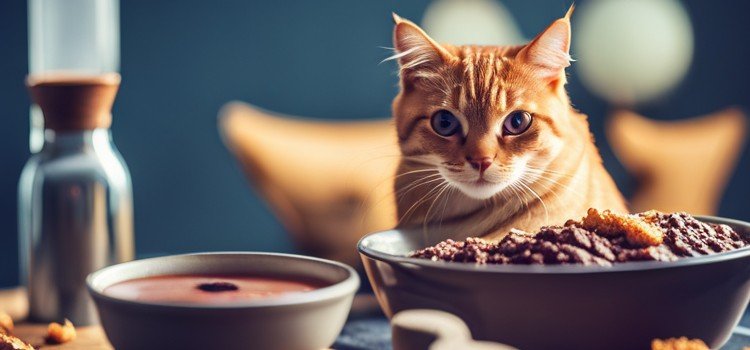As an Amazon Associate committed to the mission of improving the lives of our readers, Live-Clear.com receives a small commission from eligible purchases made through our affiliate links. This revenue enables us to keep producing insightful articles and other material.
A cat may open and close its mouth due to dental or respiratory issues. Further examination by a veterinarian is necessary to determine the exact cause.
When your feline friend starts exhibiting unusual behavior like opening and closing its mouth repeatedly, it is natural to become concerned. Such actions could be an indication of a serious problem. If your cat is doing this frequently or excessively, it could be experiencing respiratory difficulties or dental problems.
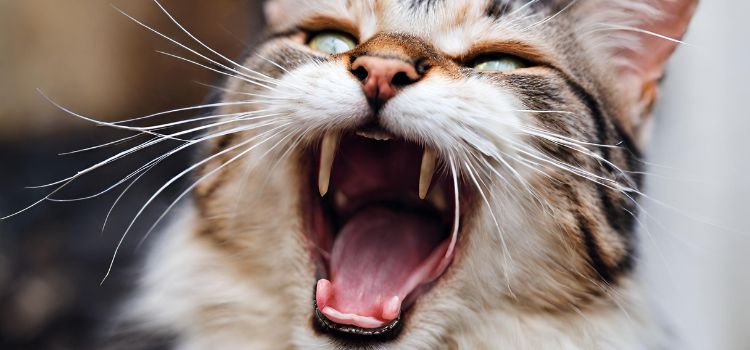
Other possible causes of this behavior include ulcers or tumors, seizures, nausea, anxiety, hypertension, and neurological disorders. As a responsible pet owner, it is your duty to give your furry companion the best care possible. Therefore, take your cat to the vet immediately if you observe any unusual behavior, particularly if your cat’s mouth opens and closes repeatedly. The vet will determine the root cause of the issue and provide appropriate treatment options.
Possible Reasons Why Your Cat Keeps on Opening and Closing Its Mouth
Have you noticed your cat opening and closing its mouth frequently? This behavior is not normal for felines and could be a sign of an underlying health issue. It could be a dental problem, oral pain and inflammation, foreign objects lodged, feline respiratory problems, or even stress and anxiety. In this article, we’ll look at the possible reasons why your cat keeps on opening and closing its mouth and what you can do about it.
Dental Problems
Cats are prone to dental problems such as gum disease, tooth decay, and tartar buildup. When they suffer from any of these conditions, they experience pain and discomfort that makes them open and close their mouth constantly. Other symptoms that may accompany dental problems include bad breath, drooling, and loss of appetite. If you suspect dental problems in your cat, it’s essential to take them to a veterinarian as soon as possible for examination and treatment.
Oral Pain and Inflammation
Oral pain and inflammation can also cause cats to open and close their mouth. This could be due to mouth sores, gingivitis, or stomatitis. These conditions cause painful ulcers and swelling in the mouth that interfere with your cat’s eating and drinking habits. If your cat is showing signs of oral pain and inflammation, take them to your vet immediately for treatment.
Foreign Object Lodged in Mouth or Throat
Cats like to play with small objects, and it’s not uncommon for them to accidentally swallow them. Foreign objects can get lodged in their mouth or throat, making it difficult for them to swallow or breathe properly. Cats may open and close their mouths to try and dislodge these objects. If you suspect your cat has swallowed a foreign object, take them to the vet immediately for medical attention.
Feline Respiratory Problems
Feline respiratory problems such as asthma, pneumonia, and upper respiratory infections can cause cats to open and close their mouth due to difficulty breathing. These conditions can be life-threatening, and it’s essential to take your cat to the vet immediately if you notice any respiratory distress. Other symptoms that may accompany respiratory infections include coughing, wheezing, and lethargy. Stress and Anxiety Lastly, stress and anxiety can cause cats to open and close their mouth frequently.
Cats are sensitive animals and can easily get stressed or anxious due to changes in their environment or routine. If your cat is showing signs of stress or anxiety, such as hiding, excessive grooming, or frequent meowing, try to identify the source of the problem and take the necessary steps to alleviate it. In conclusion, if your cat is opening and closing its mouth frequently, it’s essential to seek veterinary care immediately. Early diagnosis and treatment can help your cat recover faster and prevent further health complications.

How To Determine If Your Cat’s Mouth Movement Is Normal Or Abnormal
To determine if your cat’s mouth movement is normal or abnormal, observe their behavior closely. If your cat is opening and closing its mouth excessively, it may indicate dental problems or a respiratory issue, and it’s essential to take your cat to a veterinarian for a check-up.
If you are a cat-owner, you may have noticed your feline companion opening and closing its mouth. While it’s common for cats to occasionally yawn or pant, excessive or unusual mouth movements may indicate an underlying health problem. In this post, we will discuss how to determine if your cat’s mouth movement is normal or abnormal, and what other symptoms to look out for.
Observe The Mouth Movement Closely
The first step in determining if your cat’s mouth movement is normal or abnormal is by observing it closely. If your cat is occasionally opening and closing its mouth, it may be yawning or adjusting its jaw position. But, if your cat is frequently opening and closing its mouth, drooling, or making sounds while doing so, it could indicate an issue.
Check For Other Behavioral Changes
Aside from mouth movement, you should also check for other changes in your cat’s behavior. For instance, if your cat is eating less, hiding more often, or avoiding contact with you, it could be a sign of oral pain or discomfort. If your cat is restless, agitated, or excessively grooming itself, it could indicate anxiety or stress.
Examine The Cat’s Mouth And Teeth
Another step in determining if your cat’s mouth movement is normal or abnormal is by examining its mouth and teeth. Check for any signs of inflammation or redness in the gums, or any broken or loose teeth. If your cat’s mouth is swollen or has a foul odor, it could indicate an infection or dental disease. You might want to use a flashlight and a dental mirror to see the teeth and gums more clearly.
Watch For Other Symptoms
Lastly, you should watch out for any other symptoms that your cat might exhibit. For example, if your cat is sneezing, coughing, has a runny nose, or has watery eyes, it could indicate a respiratory or upper respiratory tract infection. If your cat’s ears are dirty or it keeps scratching them, it could indicate an ear infection or allergy. In conclusion, regularly observing your cat’s mouth movements and behavior is crucial in detecting any underlying health problems. Early detection and prompt treatment can prevent further complications. Remember that any abnormality in your cat’s health should be consulted with a veterinarian for proper diagnosis and treatment.

What To Do If Your Cat Keeps On Opening And Closing Its Mouth
If your cat keeps on opening and closing its mouth, it could be due to a variety of reasons such as dental issues, respiratory problems or even stress. It’s crucial to observe your cat’s behavior closely and take them to the vet as soon as possible to diagnose and treat any underlying issues.
Does your cat keep on opening and closing its mouth? This could be a sign of a health condition that needs immediate attention. As a responsible pet owner, it is important to take action as soon as you notice this behavior. In this article, we’ll discuss what you should do if your cat keeps on opening and closing its mouth.
Visit The Vet Right Away
The first thing you should do if your cat keeps on opening and closing its mouth is to schedule a visit to the vet. Mouth opening and closing in cats may indicate various health conditions including dental issues, respiratory issues, infection, pain, and more. Your vet will perform a thorough examination to determine the underlying cause of your cat’s symptoms.
Allow The Vet To Perform A Thorough Inspection
When you take your cat to the vet, it is important to allow them to perform a thorough inspection. This will help the vet to accurately diagnose the underlying cause of the mouth opening and closing behavior. The vet may perform several tests including an oral exam, blood tests, x-rays, or ultrasounds to determine the root cause.
Provide The Cat With Proper Treatment
Once a diagnosis has been made, it is important to provide your cat with proper treatment. The treatment will depend on the underlying cause of the behavior. Possible treatments may include antibiotics, medication, surgery, or other forms of treatment necessary to help your cat feel better.
Follow The Vet’s Follow-up Instructions
After the treatment, it is important to follow the vet’s follow-up instructions. This may include administering medication, follow-up appointments, or other necessary steps to help your cat recover completely. Following the vet’s instructions can help ensure your cat’s full recovery and prevent future health issues. In summary, if your cat keeps on opening and closing its mouth, take it to the vet right away. Allow the vet to perform a thorough inspection to determine the underlying cause, provide proper treatment, and follow the vet’s follow-up instructions. With proper attention and care, your cat can recover and live a healthy life.
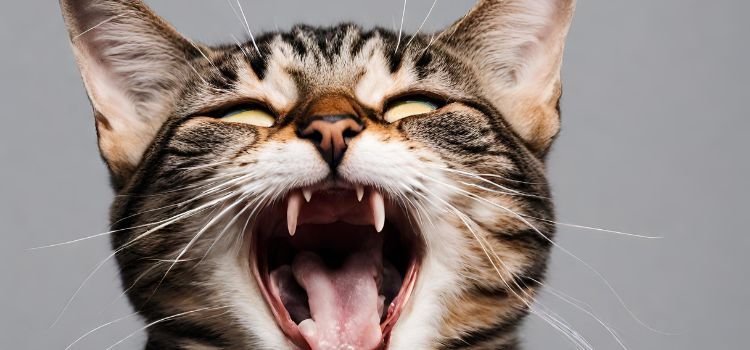
Preventative Measures To Avoid Cats Mouth Problems
If you notice your cat repeatedly opening and closing its mouth, it could be a sign of dental or oral problems. To prevent these issues, ensure your cat has proper dental care, including regular check-ups and teeth cleaning. Additionally, provide them with healthy food options and encourage them to chew on toys to promote good oral health.
Cats are known for their curious nature, but sometimes their habits can indicate an underlying health concern. One such habit is opening and closing its mouth repeatedly. This behaviour can be caused by many reasons, and preventive measures are necessary to avoid dental problems in cats. In this section, we will discuss some essential steps that you can take to keep your cat’s mouth healthy and avoid any potential problems.
Regular Dental Check-ups For Cat Mouth Problem
Regular dental check-ups are critical to maintain your cat’s oral health. These check-ups help identify any dental issues early on, and timely intervention can prevent them from getting worse. As a pet owner, you should aim for at least one annual dental examination as part of your pet’s overall wellness plan. During these examinations, a veterinarian will check for tartar buildup, gum disease, cavities, crack, or loose teeth.
Proper Oral Hygiene For Cat Mouth Safety
Oral hygiene is crucial in maintaining healthy teeth and gums in cats. Brushing your cat’s teeth regularly with an appropriate toothbrush and toothpaste is one of the best ways to keep its mouth clean and healthy. Regular brushing helps remove food debris and bacteria, preventing plaque formation and bad breath. Additionally, specialized dental treats or chews can aid in cleaning your cat’s teeth.
Avoid Feeding Your Cat Harmful Foods Or Substances
Feeding your cat with harmful foods or substances can lead to various mouth problems, including irritation, inflammation, fractures, or damage to the teeth and gums. Examples of harmful substances include sugary or sticky foods, bones, hard treats, and plants that are potentially toxic to cats. You should always do a bit of research before offering your cat something new, and avoid feeding it anything that could harm its oral health.
Provide Your Cat With Stress Relief Activities
Stress can be a contributing factor to dental health issues in cats. Providing your cat with various stress relief activities, such as daily exercise and sufficient playtime, can keep your cat’s oral health in check. Such activities also boost your cat’s mental and physical fitness, which is essential in maintaining a healthy and happy feline. By following the above preventive measures, you can keep your cat’s mouth happy, healthy, and free from dental problems. Regular dental check-ups, proper oral hygiene, avoiding harmful foods, and providing stress relief activities can ensure a long and healthy life for your feline companion.
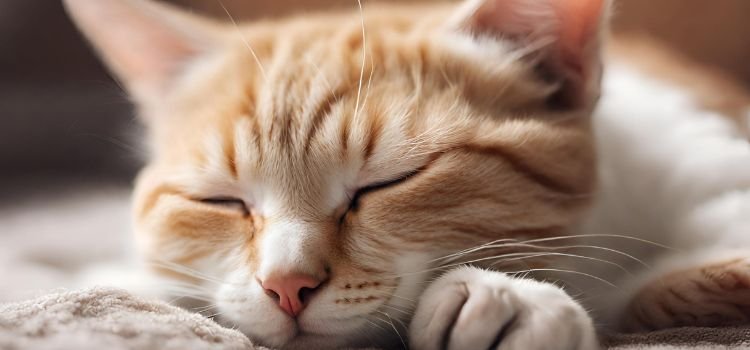
Conclusion
If you’re concerned about your cat frequently opening and closing its mouth, there could be several reasons for it. From dental issues to respiratory problems or even stress, it’s essential to monitor your cat to identify the root cause. As a responsible pet owner, you must be aware of their behavior and seek prompt veterinary care if required.
Frequently Asked Questions For Why Is My Cat Opening And Closing Its Mouth
Cats yawn to cool down their brains and release tension. It’s a normal behavior, but excessive yawning could indicate stress or anxiety. Keep an eye out for other signs of distress and consult with a veterinarian if you’re concerned.
If your cat is walking around with her mouth open, it could be a sign of respiratory distress. This could be caused by various factors, including upper respiratory infections, allergies, asthma, or dental issues. It is important to take your cat to the vet to ensure proper diagnosis and treatment.
Cats can act like something is stuck in their mouth due to dental problems, foreign objects, or allergies. It’s important to take your cat to the vet for a check-up to determine the underlying cause and proper treatment.
A cat may drool and keep its mouth open due to dental problems, nausea, stress, or viral infections. It could also be a sign of heatstroke or poisoning. The best thing to do is to consult a veterinarian immediately.
Your cat may open and close its mouth due to various health issues such as dental problems, respiratory illnesses or neurological disorders.
Understanding your feline’s unusual behavior can help maintain their health and keep them happy and well-adjusted.
Amazon and the Amazon logo are trademarks of Amazon.com, Inc, or its affiliates.
